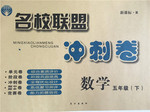��Ŀ����
����Ŀ���ٶ�Ӣ�������ʦҪ��ͬ��֮�佻�������ģ���������ͬ��д���������ġ����й���10�����Դ���ÿ���������������ÿ�������漰һ�����ʵ����� ��ɾ�����ġ�
���ӣ���ȱ�ʴ���һ��©�ַ��ţ��ģ�������������д���üӵĴ� ��
ɾ�����Ѷ���Ĵ���б������
�ģ��ڴ��Ĵ��»�һ���ߣ����ڸô�����д���ĺ�Ĵʡ�
ע�⣺1.ÿ���������ľ�����һ�ʣ�
2.ֻ������10�������ߣ��ӵ�11���𣩲��Ʒ֡�
The winter holiday is coming. My classmates and I are talking about how to do during the holiday. We can chose between staying at home and take a trip. If we stay at home, it is comfortable but there is no need to spend money. But in that case, we will learn little about world. If we go on a trip abroad, we can broaden your view and gain knowledges that we cannot get from books. Some classmates suggest we can go to places of interest nearby. I thought that it is a good idea. It does not cost many, yet we can still learn a lot.
���𰸡�1.how��Ϊwhat;
2.chose��Ϊchoose;
3.take��Ϊtaking;
4.but��Ϊand;
5.about���the;
6.your��Ϊour;
7.knowledges��Ϊknowledge
8.ɾ��can��can��Ϊshould
9.thought��Ϊthink
10.many��Ϊmuch
����������һ��������Ӿ��ϵ�ʣ��Һ��ҵ�ͬѧ���۶���������Щʲô����Ҫ��how��Ϊwhat.
�ڶ��������춯�ʣ����ǿ���ѡ����ڼ�������У���̬����can�����ö���ԭ�ͣ���Ҫ��chose��Ϊchoose.
�������������ν�ﶯ�ʣ����ڼ�������У���ʺ���doing��ʽ�����������ʾ���У���Ҫtake��Ϊtaking.
���Ĵ����������ʣ����ڼ��������ֿ���ʡǮ������������ʾ���У���Ҫ��but��Ϊand.
���崦������ڴʣ������Ƕ�һ���ģ���ʾ��ָ��the world����Ҫ��about���the.
��������������ʣ�������dz��Σ����ο��Կ������ǵ��۽�,��Ҫ��your��Ϊour.
���ߴ����������ʵ�����������鱾��ѧ������֪ʶ��֪ʶ�Dz��������ʣ���Ҫ��knowledges��Ϊknowledge.
�ڰ˴���������̬���ʣ�һЩͬѧ��������ȥ��������ʤ�ż�תһת��suggest��ʾ���飬����ı���Ӿ�Ӧ����should+����ԭ�Σ�should���Ա�ʡ�ԣ���Ҫ��ɾ��can��can��Ϊshould.
�ھŴ������춯��ʱ̬��ͨƪ��һ������ʱ���������ڵ�����,��Ҫ��thought��Ϊthink.
��ʮ�������첻��������ȥ����תת���Ứ�Ѻܶ�Ǯ��Ǯ�Dz��������ʣ���Ҫ��many��Ϊmuch

 ��ĩ��ϰ���ϵ�д�
��ĩ��ϰ���ϵ�д� ����ѧ�䵥Ԫ������ĩר����100��ϵ�д�
����ѧ�䵥Ԫ������ĩר����100��ϵ�д� �Ƹ�360�ȶ����ܾ�ϵ�д�
�Ƹ�360�ȶ����ܾ�ϵ�д� ���⿼����Ԫ���Ծ�ϵ�д�
���⿼����Ԫ���Ծ�ϵ�д� ��У���˳�̾�ϵ�д�
��У���˳�̾�ϵ�д�